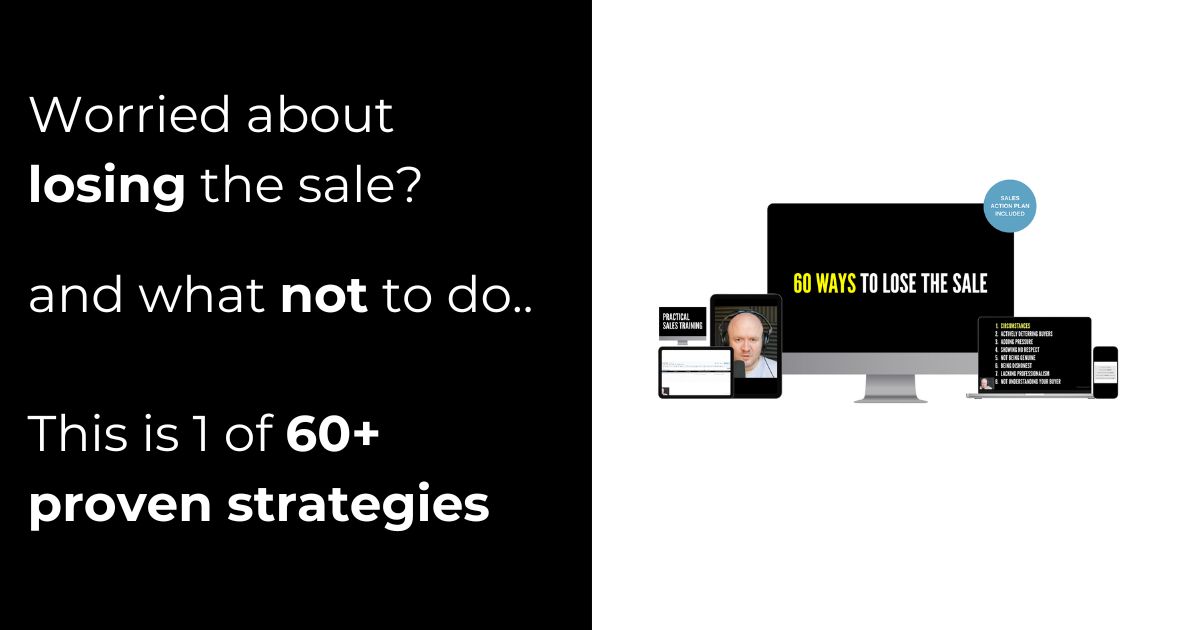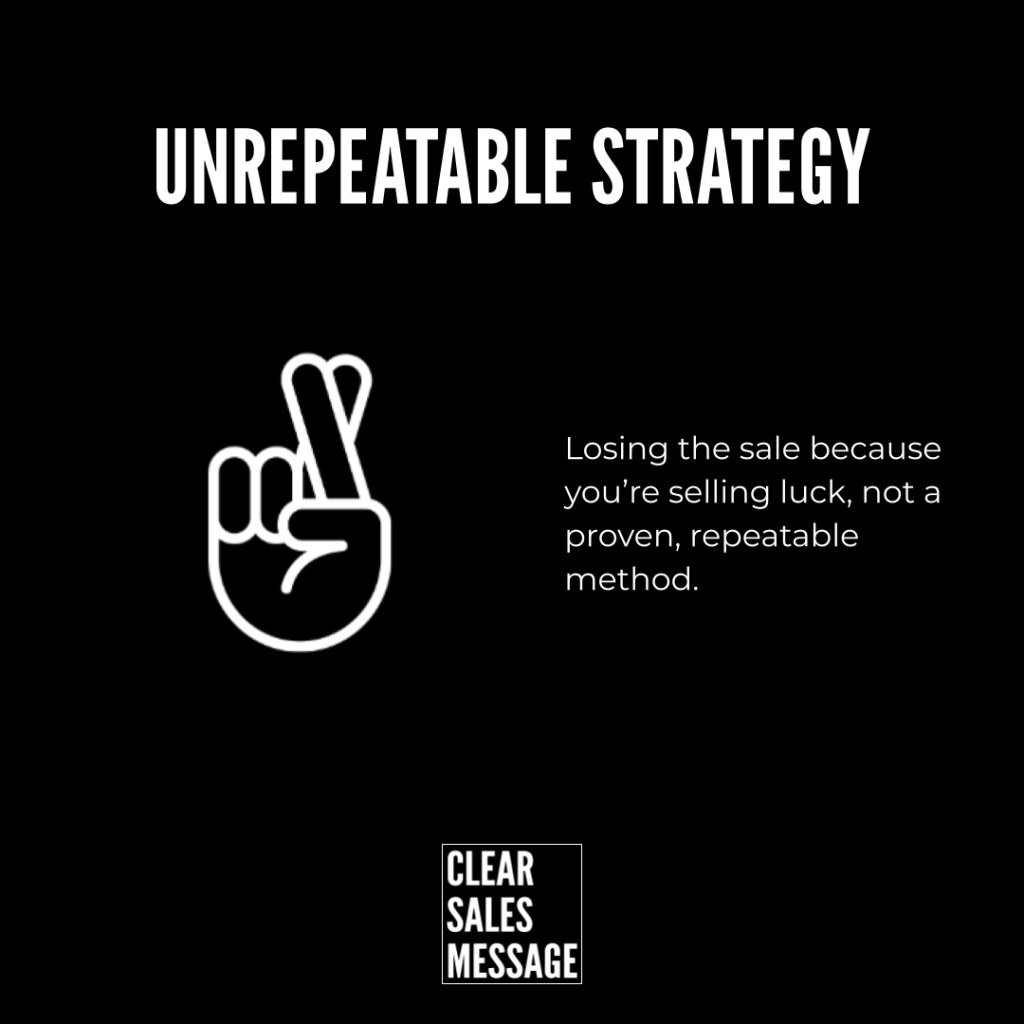Practical Sales Training™ > How To Lose The Sale> Unrepeatable Strategy
What is The Unrepeatable Strategy?
The Unrepeatable Strategy is when someone achieves success largely due to chance or unique circumstances, but then tries to package and sell that “success formula” as if it can be reliably replicated by others. In sales, this often shows up as entrepreneurs or coaches selling a strategy that worked for them once – but it’s built on luck, timing, or personal connections rather than a real, repeatable system.
How Does The Unrepeatable Strategy Work?
The danger of The Unrepeatable Strategy is that it’s easy to believe. When someone shares a story of “how they did it,” it sounds convincing, but the behind-the-scenes truth is often a mix of luck, timing, and factors that can’t be copied.
For example:
-
A single viral post that leads to success is not a strategy.
-
A random big sale or referral doesn’t mean the sales process is solid.
-
Telling people to “just do what I did” ignores the unique conditions that made it work once.
This mindset creates false confidence, both for the seller of the “strategy” and for anyone who buys into it.
How Can You Use This in Sales?
Instead of relying on an Unrepeatable Strategy, focus on proven, structured, and testable sales methods that consistently produce results.
-
Build processes, not stories – create a sales framework that can work even if luck isn’t on your side.
-
Be honest about what’s repeatable – share real principles, not one-off tactics.
-
Test and refine – a real strategy works because it can be measured and improved over time.
In sales, credibility comes from showing a method that’s reliable – not from selling a lucky break as if it were a blueprint for success.
Hypothetical Example of The Unrepeatable Strategy:
An entrepreneur launches a new skincare product and gets lucky when a celebrity mentions it on social media, causing sales to skyrocket overnight.
Seeing this success, the entrepreneur starts offering a £5,000 “coaching program” teaching other brands to “replicate” their strategy-claiming that their viral success was all due to a clever marketing formula.
In reality, the sales boom was a one-off event driven by the celebrity’s random mention, not a reliable, repeatable method. Clients who pay for the program end up frustrated because they can’t achieve the same results.
If the entrepreneur had focused on building a real marketing system (e.g., paid ads, influencer partnerships, email marketing), they’d have a strategy that worked even without luck.
See also
This part of my methodology was inspired by and is in loving memory of the late Matt Gough. Thank you for your inspiration and guidance through the years old friend.



